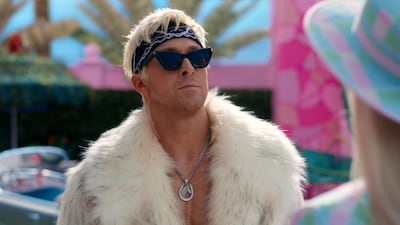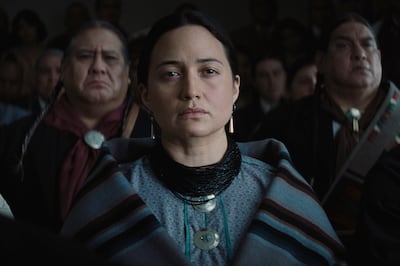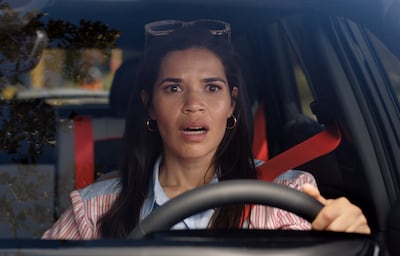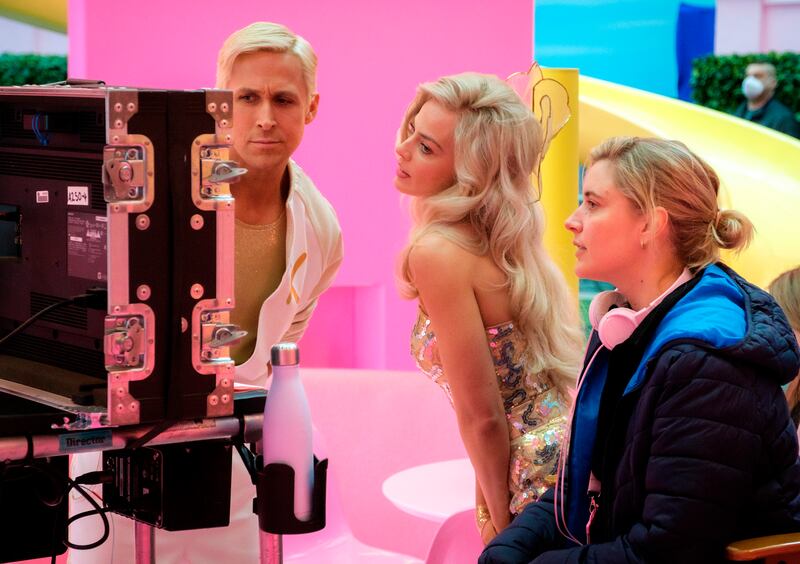The Barbie fandom is devastated.
Somehow, against all expectations, the $145-million studio tentpole movie that grossed $1.44 billion at the global box office has only earned eight Oscar nominations, with the film’s titular star Margot Robbie and director Greta Gerwig left out of their respective categories.
Life can be cruel, certainly. That is part of the point of the film itself.
“Let me see if I understand this,” wrote activist and writer Charlotte Clymer on X, formerly Twitter. “The Academy nominated Barbie for Best Picture (eight nominations total) – a film about women being sidelined and rendered invisible in patriarchal structures – but not the woman who directed the film. OK then.”
Fans of actress Robbie were more pointed in their criticism. In one viral post, by X user @cruelsummerwbre, two images were shared: one of Robbie in trademark pink and one a screenshot of the Taylor Swift song The Man, with the lyrics: “I’m so sick of running as fast as I can / Wondering if I’d get there quicker If I was a man”.
This is an understandable perspective, if you put blinders on. After all, if you look at the landscape only through one title, a film about women’s empowerment that resonated with young girls around the world has seemingly seen its two key women relegated to the reject pile, only to bestow the Supporting Actor nomination on the film’s male lead, Ryan Gosling.

Gosling himself, who delivered a near-universally beloved performance, was flabbergasted.
“To say that I’m disappointed that they are not nominated in their respective categories would be an understatement,” he wrote in a statement released online.
But there are two big problems with that perspective.
First and foremost, Gosling did not beat Robbie in the same category. There are five women who were bestowed the honour of a Best Actress nomination, all with excellent, widely acclaimed performances and some with storied careers and notable pedigree among their peers.
Patriarchal systems undoubtedly still exist, with women struggling to achieve their potential in a male-dominated world. But is the system responsible for the consensus recognising the brilliance of other women?
The odds-on favourite to win in the category is Lily Gladstone, the first Native American woman to be nominated in the Best Actress category.

One of the most common criticisms levied against certain aspects of the western feminist movement by women of colour is the phenomenon of “white feminism” – the idea that women’s empowerment movements often exclude or ignore the struggles of non-white women.
Los Angeles Times posted on Wednesday: “It was a great year for film and all of the nominees did tremendous work, but no director or actor faced the same degree of difficulty as Robbie and Gerwig.”
When no Native American actress has been nominated in the category before, it’s hard to not feel that this statement ignores the struggles that Gladstone has faced to become the thriving lead she is today.
Likewise, for nominated black actress Da’Vine Joy Randolph, who has said herself she’s had to fight her entire life to play fully realised characters – a well-documented struggle for women of colour.
This, conversely, is something Robbie has had the opportunity to do again and again in the 11 years since her breakout role in The Wolf of Wall Street. And she already has nominations for three Academy Awards, six Bafta Awards and four Golden Globe Awards to show for it.
For all of Barbie’s contributions to culture, it has one line that has echoed most widely: “It’s so hard to be a woman.”
The line is spoken by actress America Ferrera, a woman of colour, born in Los Angeles to Honduran parents.

Here’s the next big problem with the outsized criticism aimed at the Academy for the so-called snubs: America Ferrara was also nominated for an Academy Award this year, for her role in Barbie.
Why is this so easy for critics to ignore? Why is the point-of-view character the only one whose achievement seems to count?
Barbie is a film that argues that women deserve to shine equal to men. Perhaps these people interpreted it differently: Barbie deserves to shine equal to Ken.
One thing endemic to modern fan communities across media is a certain sense of entitlement. The thing they loved should get all the money, all the praise, all the awards. Especially if that thing is about something – then those awards support the work’s thesis.
The problem is that every year many films, directors and actors are all on their own journeys, and not all achievements can be recognised equally. There can only be one winner, and in most categories, there can only be five nominees.
Has everyone who is angry that Gerwig was not nominated watched the tremendous and undoubtedly feminist film Anatomy of a Fall? Do they cheer the achievement of its female director, Justine Triet, for the same reasons they would cheer Gerwig? Or Tunisian filmmaker Kaouther Ben Hania? Or is it only exciting when the woman is more famous?
Women are still grossly underrepresented in the film world, especially in the director’s seat. Female directors have to scratch and claw to get films made, especially personal ones, even if they have Academy Award nominations.
We still have so much work to do to make sure that women are not only being recognised as much as men are, but that they are directing as many films, with as much variation.
But if the calls for women to shine are only limited to the ones you know, this isn’t a matter of women’s empowerment. It’s blind fandom and personal entitlement. And that’s something that needs to change, too – especially when it’s being laundered through worthy social causes.





